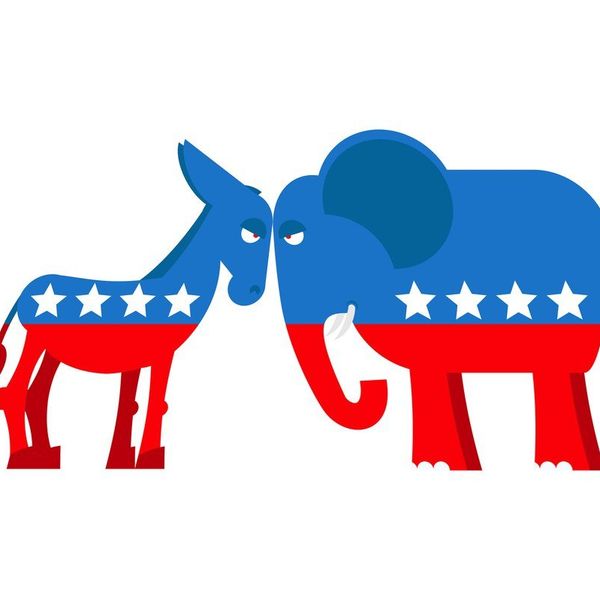You know that old saying that says the topics to avoid at the dinner table are religion and politics? I mean, it makes sense. Those are things that can take a conversation from 0-100 real quick. However, in my semester and a half here at the 'Berg, I've learned quite a few lessons that I think all political science majors must learn quickly if they want to be successful. If you're not a Poli-Sci major, you'll still find that these lessons are essential to communicating effectively with your colleagues. I think by the end of this you'll see how many of the current candidates DIDN'T learn these lessons.
1. Tolerance.
It's almost hard for me to find words strong enough to stress how important this word is in terms of politics and life in general. If you're a poli-sci major, you're going to be working with a lot of people who simply don't agree with you. Are you ready for me to blow your mind? It's okay when people don't agree with you. Now I know there are some of you out there saying, "Of course that's OK!", and to those people I send you a round of applause. However to most people, we view opinions one of two ways: right or wrong. That's one of the biggest mistakes you can make as a political science major. The key is accepting that other people are going to think differently. A city boy from Chicago like myself is going to see things way differently than someone raised in a small town like Tiffin. Basically, "different" and "wrong" are NOT synonymous.
2. Listening to Others.
Listening is a skill. I'm sure you've all heard that before. Listening to things you don't want to hear is hard, but it is necessary in political science. I'll be honest. Whenever one of my colleagues starts of a sentence with, "Donald Trump would make a decent leader because...", my brain immediately wants to shut them out for the duration of time in which they continue spouting such nonsense. However, in politics it's important to listen to different viewpoints. You might find that you agree with certain aspects of what they are saying. That, my friends, leads to this rare phenomenon in politics known as "compromise".
3. Anger Management
As a poli-sci major or anyone taking a poli-sci class, you will inevitably have a moment in class where someone says something that goes so far against your beliefs, that you will feel anger ranging from wanting to cuss them out right then and there, to wanting to engage in a legitimate physical brawl with said offender. Poli-Sci majors, there will be that one student in every one of your courses. Sometimes it may be the same student in multiple courses. Deep breaths. You have to get used to feeling angry and you must learn to control it. This links back to that whole tolerance thing. Remember, it's OK when people don't agree with you. Odds are, you'll have a much better chance getting your point across if you do it calmly. Anger leads to unnecessary conflict, especially on a sensitive subject like politics.
4. Opposite Party Members Aren't Your Enemies.
Alright this one is simple and quite possibly the most important thing on this list. If you are a Democrat, the Republican party seems like the Devil and vice-versa. As a poli-sci major, it is imperative that you get rid of this mentality ASAP. In the words of the well acclaimed Jack Sparrow, "That kind of thinking got us into this mess." You'll enjoy your classes a lot more if you take the time and get to know the members of the opposite party. Sit with them, talk to them, share ideas. By doing that you develop a more moderate way of thinking that will take you far if you decide to be a politician.
5. Not all members of a political party think the same way.
This should be obvious, but quite honestly, the biggest mistake poli-sci majors make is generalizing. Not all Democrats believe that we should have extremely tough gun laws. Not all Republicans believe that we should ban Muslims from entering the U.S.. Not all Democrats think that global warming is real. Not all Republicans believe that gay marriage is wrong. A major flaw of the American Political System is that we only have 2 major parties. Because of that simple fact, it means that no matter how moderate or extreme you are, you are still only grouped as Democrat or Republican. Poli-Sci majors should make it a point to recognize that there are broad spectrums on both wings of political thinking.

























